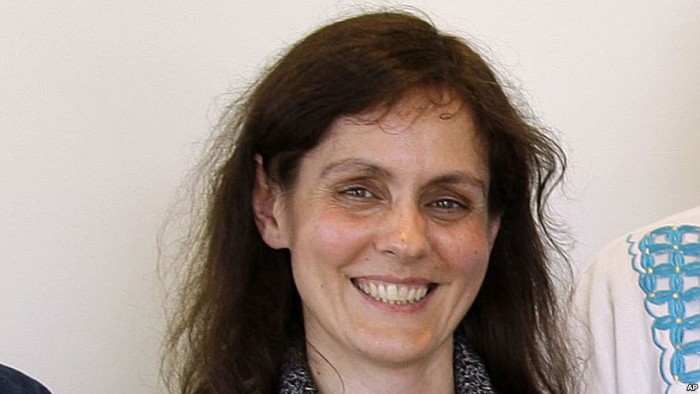An International Conference on Chemicals Management has agreed on a plan that could prevent the annual deaths of more than one million people exposed to toxic chemicals. More than 800 participants, including ministers, industry and civil society leaders, have agreed on a strategy to reduce risks from chemicals at a weeklong United Nations Environment Programme (UNEP) conference.

Chemicals are an integral part of peoples’ lives. Yet while they are essential and beneficial, they also can be hazardous. Managing those hazards is difficult because little is known about many of them.
According to UNEP, only a fraction of the estimated 100,000 chemicals on the market have been thoroughly evaluated to determine their effects on human health and the environment.
But, enough is known to determine they can be dangerous. UNEP reports the infant death rate from environmental causes is 12 times higher in developing than in developed countries. It says childhood lead exposure contributes to about 600,000 new cases of mental disabilities in children every year.
However, delegates to an international forum addressing global and national chemical issues at the weekend re-committed to take essential actions to fulfill a goal of sound chemicals management by 2020, but allowed the only programme funding activities in the most impacted countries to expire.
The $4 trillion per year chemical industry, which participates in the conference, also failed to offer new funds to pay their fair share for the costs of chemicals management and harm. A very small global levy on the industry of 0.1% would yield more than $4 billion per year.
“ICCM4 agreed to take action on some critical toxic chemical issues,” said Olga Speranskaya, Co-chair of IPEN.
“However, a five-year funding gap will make it extremely difficult to implement them. This makes the need for funding urgent. Governments, financial institutions, intergovernmental organisations and the chemical industry must each pay their fair share,” she added.
Current issues addressed critically during the conference include highly hazardous pesticides (HHPs), information about chemicals in products (CiPs), eliminating lead paint, nanotechnology, pharmaceutical pollutants, and endocrine disrupting chemicals (EDCs).
A key outcome at ICCM4 was a strategy to tackle the world’s worst pesticides – those that are highly hazardous and linked to a rising incidence of cancer and developmental disorders. The decision at ICCM4 represents the first time that these substances will be addressed in a comprehensive way in a UN agreement. Delegates took a major step towards sustainable agriculture by emphasising a more holistic agroecology approach.
“In Ethiopia, highly hazardous pesticides poison farmers and pollute the land,” said Tadesse Amera, Pesticide Action Nexus. “Now we need to get to work on the new strategy so that instead of poisoning ourselves with pesticides, we grow food in a way that respects human health, our land, and our water.”
Positive actions taken by this year’s ICCM4 include:
Highly Hazardous Pesticides (HHPs). Delegates affirmed that HHPs harm human health and the environment, particularly in developing and transition countries. ICCM4 agreed to take concerted action on HHPs with an emphasis on promoting agroecology as an alternative to HHPs and strengthening regulatory capacity.
International chemicals management beyond 2020. Delegates mandated the development of a plan for continuing international cooperation on chemicals’ management beyond 2020 when the process expires.
Information about chemicals in products. ICCM4 recommended that companies identify and disclose harmful chemicals in their products and supply chains using both national laws and criteria for chemicals of concern. Delegates recommended to start pilot participatory activities on information disclosure and signaled the need to make information disclosure equally available in developing countries.
Hazardous chemicals in electronics. Delegates called on equipment manufacturers to provide health and safety information to workers on chemicals they are handling or exposed to and to devise and implement take back programs at the end of life. ICCM4 also signalled the need for procurement initiatives that favour greener electronic products and called on the industry to make safer products.
Endocrine disrupting chemicals. Except for chemical manufacturers, the meeting participants agreed that endocrine disrupting chemicals can harm humans and wildlife and that reducing exposure should be an important focus. Delegates agreed to respond to needs identified by developing and transition countries.
Lead in paint. ICCM4 affirmed the goal to phase out lead in paint by 2020.
Nanotechnology. There was a mandate to all stakeholders to conduct awareness raising, capacity building and information sharing activities on nanotechnology; a call for sustained funding; encouragement to develop a clearinghouse mechanism; and for activities to include information about both benefits and harms.
Pharmaceutical pollutants. At ICCM4, environmentally persistent pharmaceutical substances became a special SAICM focus area with intent to increase awareness among policymakers and other stakeholders.
Leslie Adogame is Executive Director of SRADev Nigeria who represented Nigerian NGOs (a participating member of IPEN), an international network of more than 700 organisations that fight toxic chemicals and works with people who suffer from contamination from farm pesticides, mercury hotspots, lead poisoning and other toxic products.
“For us in Nigeria (perhaps Africans), we are happy we got relatively most of all we wanted in the deal and pleased with the outcomes of this political conference (despite the poor funding commitment) because the delegates adopted among others concrete risk reduction activities hazardous pesticides use, elimination of lead in paints, (as you know lead is continuously added to Nigerian paints), and chemicals added to products, which if implemented, will result in the reduction of toxic exposure on human health and the environment,” said Adogame.
“We now return home to push our government towards fulfilling this obligations and her recent statements of commitments to sustainable development goals (SDGs) beyond leap service. Prejudicial funding and national budgeting of the chemicals sector is key just as the immediate mainstreaming of chemicals management into national developmental agenda is very imperative for the plan for action,” he added.
